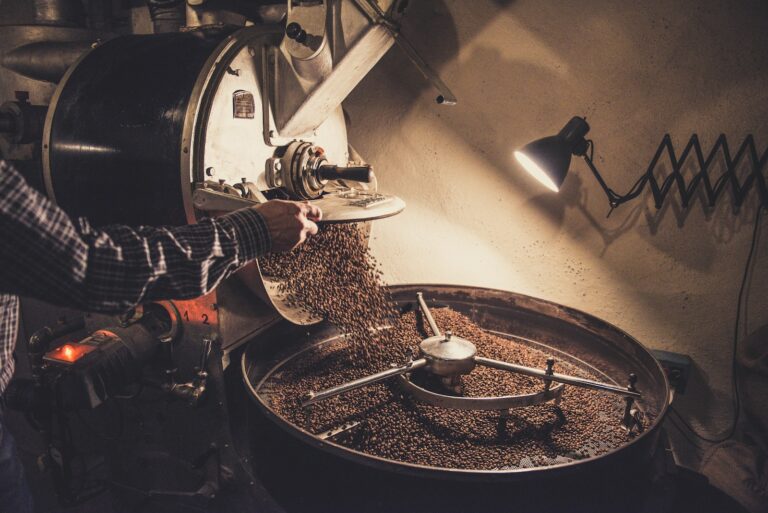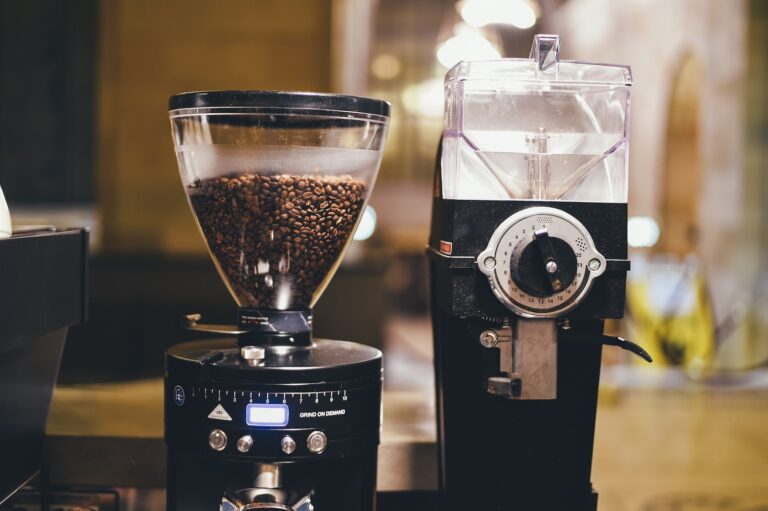Did you know that over 2.25 billion cups of coffee are consumed globally each day? That’s enough to fill two Olympic-sized swimming pools!
Coffee isn’t just a morning buzz; it’s a cultural cornerstone, a social lubricant, and a billion-dollar industry. From fueling our workday to powering creative ventures, coffee impacts millions of lives around the world.
But how will this ubiquitous beverage evolve? This blog dives into the exciting, innovative trends shaping the future of coffee, from bean to cup.
Future of coffee industry

The future of coffee is brewing with exciting possibilities! Here are some key trends shaking up the industry:
Sustainability at the Forefront:
- Consumer consciousness: Consumers are increasingly demanding ethical sourcing, fair trade practices, and environmentally responsible farming. Brands that prioritize sustainability will have an edge.
- Regenerative agriculture: This practice aims to improve soil health and biodiversity, leading to more resilient coffee crops and better bean quality.
- Lab-grown coffee: Though still in its early stages, it holds potential for addressing sustainability concerns by reducing reliance on traditional farming methods.
Personalization and Convenience:
- Subscription services: Tailored coffee deliveries based on individual preferences are gaining traction, offering convenience and discovery.
- Smart brewers: Connected brewing devices offer precise control over brew parameters and personalized recipes.
- Coffee capsules with unique origins and flavor profiles: Cater to the desire for variety and exploration.
Functional Coffee:
- Coffee infused with adaptogens, nootropics, and other ingredients: Targeting specific needs like enhanced focus, relaxation, or immunity support.
- Microdosing caffeine: Precisely controlled caffeine doses for a sustained energy boost without jitters.
- Focus on wellness: Functional benefits combined with delicious taste will likely shape future coffee products.
Technology and Transparency:
- Blockchain technology: Ensures traceability and fair compensation for farmers.
- Augmented reality experiences: Enhancing the coffee journey through interactive learning and brewing insights.
- AI-powered recommendations: Personalized suggestions based on taste preferences and brewing equipment.
Shifting Landscape:
- Fourth Wave coffee: Moving beyond the focus on single-origin beans, emphasizing experience, innovation, and accessibility.
- Evolving retail model: Blending online and offline experiences, with coffee shops acting as community hubs and education centers.
- Impact on traditional producers: Adaptation and innovation will be crucial for coffee-growing communities to remain competitive.
Remember, these are just some of the exciting trends brewing in the world of coffee. It’s sure to be an interesting journey to see how they unfold and shape our future cup!
The Rise of Sustainable and Ethical Coffee: Brewing a Better Future
The aroma of freshly brewed coffee is a global phenomenon, but increasingly, consumers are demanding more than just a delicious cup. They want to know the story behind their beans: where they came from, how they were grown, and the impact on the environment and the farmers who cultivated them. This shift is driving the rise of sustainable and ethical coffee, a movement that’s transforming the industry.
Why the Growing Demand?
Several factors are fueling this trend:
- Environmental consciousness: Consumers are increasingly aware of the environmental impact of their choices, and coffee production often involves deforestation, water pollution, and soil degradation.
- Ethical concerns: Fair trade practices ensure farmers receive fair wages and improve their livelihoods, combating poverty and exploitation.
- Quality and taste: Sustainable practices often lead to healthier soil, better bean quality, and ultimately, a more flavorful cup.
Sustainable and ethical practices in coffee production
The growing awareness about sustainability and ethical practices has greatly impacted the coffee industry in recent years. Consumers are increasingly demanding products that have been produced in a socially responsible and environmentally friendly manner. In response to this, many coffee producers and companies are starting to adopt sustainable and ethical practices in their production processes.
Sustainable coffee production refers to the use of farming methods that minimize negative impacts on the environment while also promoting long-term economic viability for farmers. One of the main practices of sustainable coffee production is shade-grown farming, where trees are strategically planted alongside coffee plants to provide shade and promote biodiversity.
This helps prevent soil erosion, conserves water, and provides habitats for wildlife. In addition, sustainable farming methods prioritize using natural fertilizers instead of chemical ones, reducing the risk of pollution and promoting healthier soil.
Along with environmental considerations, ethical practices in coffee production focus on fair treatment of workers, transparency in supply chains, and ensuring fair wages for farmers. Fairtrade certification is one way that companies can demonstrate their commitment to ethical practices.
This certification guarantees that small-scale farmers receive fair prices for their beans, providing them with better financial stability. It also ensures safe working conditions for workers at all stages of the supply chain.
Technology’s impact on coffee cultivation and consumption
Technology has played a significant role in shaping the coffee industry and has had a profound impact on both the cultivation and consumption of this beloved beverage. From advancements in farming techniques to innovations in brewing methods, technology has revolutionized the way we grow, roast, and consume coffee.
One of the most significant ways technology has influenced coffee cultivation is through precision agriculture. This technique uses data, sensors, and algorithms to optimize every step of the growing process, from soil analysis and irrigation management to pest control and harvesting.
Through precision agriculture, farmers can gather real-time information about their crops, allowing them to make informed decisions that ultimately lead to higher crop yields and better quality beans.
Another important aspect of technology’s impact on coffee cultivation is sustainability. As consumers become increasingly conscious about where their food comes from and its environmental impact, coffee producers have turned to technology for sustainable solutions. For example, the use of smart drones equipped with cameras and sensors allows farmers to monitor plant health remotely without damaging their crops or disrupting wildlife habitats.
In addition to changing how we cultivate coffee beans, technology has also transformed the way we consume them. One notable innovation is single-serving pod machines that offer convenience without sacrificing taste. These machines use precise measurements and advanced brewing systems that deliver consistent results every time. They also reduce waste by only producing enough coffee for one serving at a time.
The impact of changing consumer preferences on the industry
The coffee industry has seen significant changes over the years, with new trends and consumer preferences constantly emerging. These changing preferences have a direct impact on the coffee industry, shaping its future and influencing how businesses operate.
One major factor driving these changes is the rise of health-conscious consumers. As people become more concerned about their well-being, they are seeking out healthier alternatives to sugary drinks like sodas and energy drinks. This shift in consumer behavior has led to an increased demand for options such as plant-based milk, low-sugar or sugar-free syrups, and organic coffee.
Another trend that is shaping the future of the industry is sustainability. With growing awareness of environmental issues, consumers are becoming more eco-conscious and are actively seeking out brands that align with their values.
This has resulted in an increased demand for ethically sourced and sustainably grown coffee beans. In response to this trend, many companies in the industry have started investing in sustainable farming practices and transparent sourcing methods.
Conclusion
As the coffee industry continues to evolve, there is no doubt that we will see more exciting and innovative trends emerging in the future. From sustainable practices and ethical sourcing to technological advancements and new brewing methods, there is much to look forward to for both coffee lovers and industry professionals.
These emerging trends have not only enhanced our overall experience with this beloved beverage but also paved the way towards a more ethical and environmentally conscious industry. So let’s raise our cups to the future of coffee!







